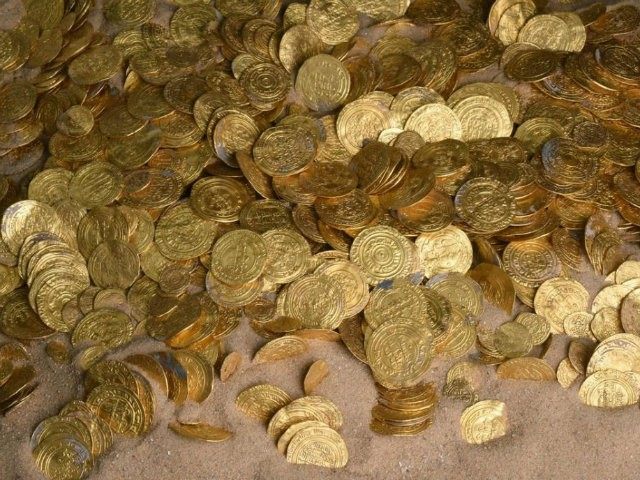TEL AVIV – Israeli archeologists unearthed 2,140-year-old shekel coins in Modi’in, a city in the center of the country, Fox News reported.
The coins, which were found during excavations in preparation for the construction of a new neighborhood, date from the Hasmonean period.
According to Avraham Tendler, director of the excavation, on behalf of the Israel Antiquities Authority, the coins are “shekels and half-shekels that were minted in the city of Tyre and bear the images of the king, Antiochus VII, and his brother, Demetrius II.”
“The cache that we found is compelling evidence that one of the members of the estate who had saved his income for months needed to leave the house for some unknown reason. He buried his money in the hope of coming back and collecting it, but was apparently unfortunate and never returned.”
“It is exciting to think that the coin hoard was waiting here 2,140 years until we exposed it,” Tendler added.
The area they were found in once housed an agricultural estate belonging to a Jewish family. An olive and storehouses for olive oil are in the process of being uncovered in an industrial area adjacent to the site.
Dr. Donald Tzvi Ariel, head of the coin department at the Israel Antiquities Authority, explained that there was a coin for every year between 135 and 126 BCE. A total of sixteen silver coins were found in addition to many bronze coins bearing the names of Hasmonean kings.
“It seems that some thought went into collecting the coins, and it is possible that the person who buried the cache was a coin collector,” Ariel said. “He acted in just the same way as stamp and coin collectors manage collections today.”
Each of the coins were engraved with “Year Two” and the slogan “Freedom of Zion,” indicating that the estate’s residents took part in the first revolt against the Romans in 66 AD, the report said.

COMMENTS
Please let us know if you're having issues with commenting.